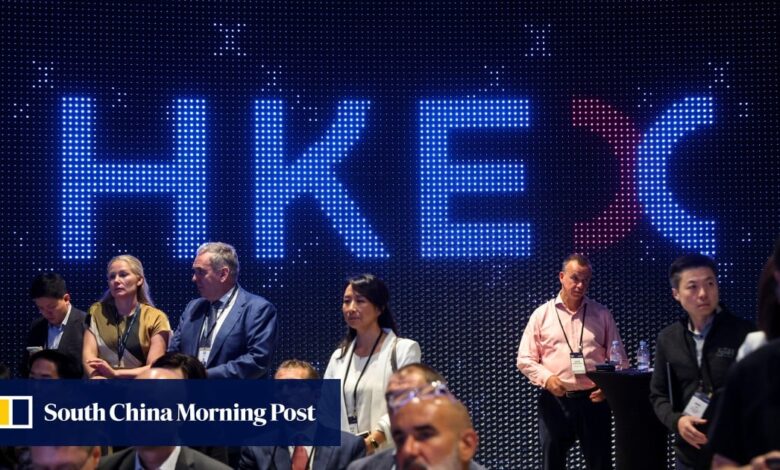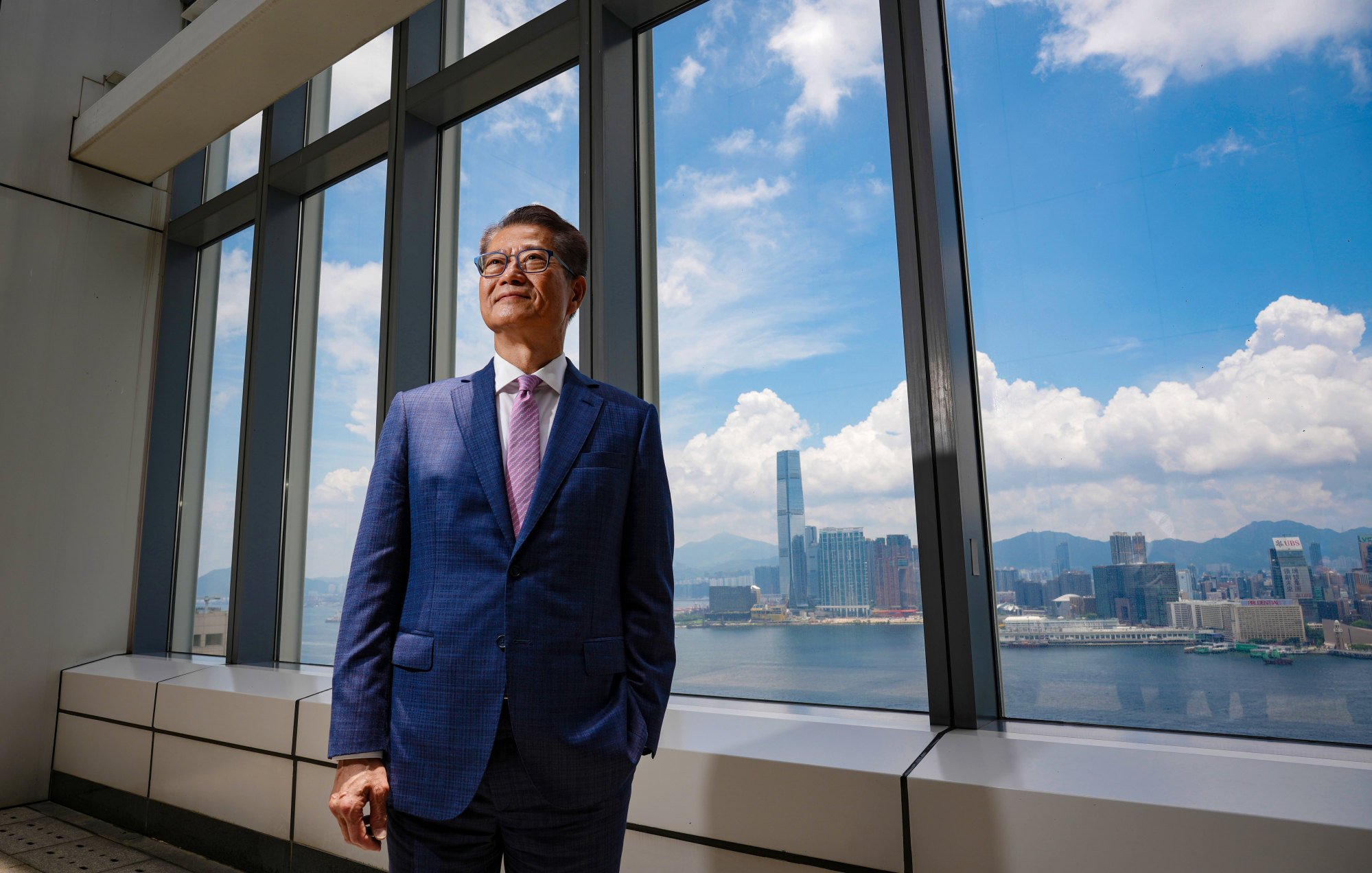Hong Kong stock market will rebound with more IPOs ‘in pipeline’ in second half of year: Paul Chan

“I won’t comment on specific cases, but we are very confident that strong support from the central authority has been communicated to mainland enterprises,” he said, referring to measures to connect businesses across the border with Hong Kong’s equity market.
“At the moment, in the pipeline, IPOs coming to Hong Kong are very strong. And we do think that in the second half of this year, particularly from the third quarter, you will be able to witness more substantial IPOs coming here for listing.”
IPOs in Hong Kong raised HK$11.6 billion across 27 deals in the first half of 2024. This was a decline of 35 per cent in funds and 15 per cent in the number of deals, compared with the first half of 2023.
Chan attributed his optimism to dialogue with some mainland company executives, who said approval of listings by the China Securities Regulatory Commission took longer compared with Hong Kong.
The finance chief said it would be easier for firms such as deep tech companies to list in Hong Kong, given the city had tailor-made rules for the innovation sector that took into consideration that new companies might not be initially profitable.
“In the early years, they need to have multiple rounds of financing to support their research and development. So for these kinds of companies, Hong Kong is a natural platform,” he said.
Chan added that the city had also opened up new capital sources for Middle East companies, which were less concerned with geopolitical factors and had high hopes for the mainland’s economic development.
“The business environment and [our] rules and regulations are more familiar to them because we are aligned with the best international standards,” he said.
Hong Kong is struggling to overturn gloomy public sentiment on its economy, which has been shadowed by geopolitical tensions with the US and Europe, and a change of residents’ consumption habits.
The economy grew 2.7 per cent year on year in the first quarter of 2024, at the lower end of the government’s forecast, with private consumption rising 1 per cent from the same period last year.

Critics have also pointed to a downturn in the property and stock markets doubly hampering the “wealth effect” of residents.
Despite the dim outlook, Chan rejected criticism that the government lacked ideas, saying it had addressed structural changes and diversified the economy by developing new industries, including artificial intelligence and data analytics, fintech, new materials, new energy and health technologies.
He also pointed to Hong Kong repositioning itself as an international supply chain centre after some manufacturers chose to relocate to Asean countries in the wake of geopolitical tensions that had led to tariff restrictions.
Chan said he would embark on a trip to Australia in September to further promote the city’s investment opportunities, visit local enterprises and meet the business community.
The finance chief said he had “interesting discussions” with different sovereign wealth funds and long-term investment companies in recent months. He also revealed that the government-owned Hong Kong Investment Corporation (HKIC) had received interest from more than 100 companies hoping to develop their businesses in the city.
“They are interested to come and are asking us to invest in them,” Chan said of the companies. “But of course, we have to be selective because we are not investing only for investment’s sake.”
He added: “I need them to bring us value beyond financial benefits. So that is the strategy that we are pursuing.”
HKIC, the government’s investment vehicle, has a fund that manages HK$62 billion (US$8 billion) in assets and invests in technology companies to spur innovation and diversify the city’s economy.
Earlier this week, HKIC struck a deal with a Beijing-based biotechnology firm, Biomap, started by Robin Li Yanhong, founder of Chinese internet giant Baidu. It was the fund’s second public move as the city sought to boost its technology sector.
Under the partnership, Biomap will set up an R&D accelerator called BioMap InnoHub, which aims to support more than 50 early-stage projects in cutting-edge life sciences by prioritising projects recommended by universities and industry partners in Hong Kong.
Asked how HKIC might match up to Singapore’s sovereign wealth fund, Temasek Holdings, Chan said such a comparison was “unfair”.
“We are not a sovereign fund,” he said, noting HKIC had a “dual purpose”.
“On the one hand, it needs to put this money for investment to generate financial return. But more importantly, it needs to use this money to help us attract the right companies to come to Hong Kong.”
“I don’t mind if the financial return is lower, if they are able to bring this tangible benefit. I’m confident that given a little more time, the results will be more visible.”
Chan said HKIC would announce more plans by next month.





